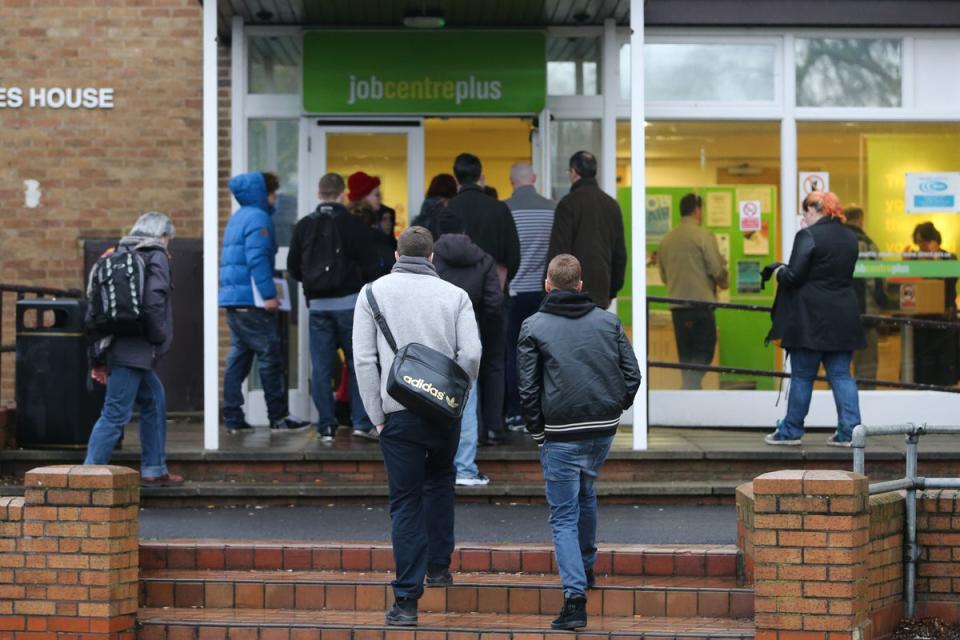How millennials became the hardest working generation

Generation Z can be “really annoying” to work with – that’s according to Jodie Foster. They make up their own work hours – “Nah, I’m not feeling it today, I’m gonna come in at 10.30am” – and think using correct spelling and grammar in emails is “limiting”, she told The Guardian in an interview.
Riffing on the theme, The Times ran a piece exploring the question of whether people born between the late 1990s and early 2010s are, by nature, “self-righteous slackers” in the workplace. The following anecdote is told during the article: “One friend, a 33-year-old communications manager, tells me of her surprise that all four of the under-25s she manages have never considered logging into work emails on their phone. Instead of chowing down a salad over their keyboards at lunchtime, they take a full one-hour break. At the end of each day, they clock off at 6pm sharp.”
But the topic has sparked conversation over whether, in reality, it’s millennials – those born between the early Eighties and mid-Nineties – who’ve got it all wrong. After all – why shouldn’t employees finish work when they’re contracted to? Why shouldn’t they leave answering emails to office hours? Why should they constantly go “above and beyond”, when it’s rarely rewarded or even acknowledged?
Twitter/X user @TypeForVictory perhaps put it most succinctly:
“55-year-olds: Two-hour boozy lunches, no emails, pub by 6pm.
“35-year-olds: Lunch at desk, emails and calls 24/7, work late.
“25-year-olds: Hour for lunch, emails during work hours, go home by 6pm.
“Millennials, I think we screwed up somewhere.”

This isn’t just anecdotal – there is data to support the notion. In a continual mass study of young people in the US called Monitoring the Future, which has surveyed 50,000 eighth, tenth and twelth graders (equivalent to Year 9, Year 11 and sixth formers in the UK) every year since 1975, they asked how willing 18-year-olds would be to work overtime. Collating and analysing the data from the various cohorts, Jean Twenge, author of Generations: The Real Differences between Gen Z, Millennials, Gen X, Boomers and Silents – and What They Mean for the Future, found that the percentage of young people willing to work beyond their contracted hours was steadily going down until around 2009-10, when there was a significant uptick. Conversely, the percentage has plummeted in recent years: between 2020 and 2022 it dropped from 54 to 36 per cent. These trends were mirrored in other questions too, such as whether work was a central part of their lives, and whether they would want to work if they didn’t need to financially. “There is some truth to the idea that, when they were young at least, millennials were more work-orientated compared to those who came before and after,” Twenge tells me.
It struck a chord with this 36-year-old. Growing up, my perception of journalism as a profession was largely shaped by Bill Bryson’s book Notes From a Small Island, in which he reminisces about working in a 1980s British newsroom; colleagues would swan in, file a single story, and head to the pub at lunchtime, never to return. And all of this on a healthy salary, the likes of which I could only dream of. That’ll do nicely, I thought.
When it came to my own entry into the workforce, things were starkly different. Having been part of a generation who were told that, if we worked hard enough, we could achieve anything we set our minds to, I graduated in 2008 – the year of the banking crash.
There is some truth to the idea that, when they were young at least, millennials were more work-orientated compared to those who came before and after
Jean Twenge, psychologist and author
Trying to get your foot on the first rung of the career ladder is challenging at the best of times. In the middle of a global recession, it is nigh-on impossible. A fresh-faced, keen-as-mustard 21-year-old proudly clutching her first-class degree from a top-tier university, I couldn’t get a job for love nor, literally, money. Every basic, entry-level admin role I went for already had more than a thousand applicants. Gaining a first interview was a Herculean task, and the pressure was such that the week before it would be spent in sleepless nights and anxious, prep-filled days – all to no avail. I both signed on for jobseekers’ allowance and slipped into a deep depression for the first time in my life.
Why am I giving you my oh-woe-is-me Dickensian backstory? Because I’ve always had this theory that the job market you come of age into has a profound impact on your work ethic and attitude to employment for the rest of your career. My cohort and I had to claw our way into our professional lives – we still live in obsequious gratitude that we’ve been hired, and perpetual fear that we’ll be fired, even 15 years later. We are forever running ourselves ragged trying to prove that we’re “indispensable”. Our poster child is Andy Sachs, Miranda Priestly’s chronically overworked assistant in the Noughties film The Devil Wears Prada.
So did the economic landscape in which we entered the job market really shape our work ethic back then? “I think it did,” says Twenge. “Whether that persisted is more of an open question. But the great recession definitely had an impact on these attitudes. Graduating into higher unemployment, millennials realised they might have to work harder to get ahead.”
Between 2008 and 2009, UK unemployment skyrocketed by the steepest jump in any 12-month period in the last 30 years, leaping from 5.62 to 7.54 per cent – an almost 2 per cent increase – according to World Bank data. The rate rose for the following two years, reaching a high of just over 8 per cent in 2011. Gen Z, by contrast, did not graduate into this landscape. By 2018, the unemployment rate had dropped to 4 per cent. By 2022, it was down to 3.57 per cent: the lowest it’s been in the past 30 years. In such a market, why wouldn’t you demand employers value your worth and respect your boundaries? It’s borne out by the data: a whopping 67 per cent of Gen Z agree “employees should only do the work they are paid for – no more, no less”, compared to 51 per cent of millennials and Generation X, according to YouGov data.

“Gen Z has benefited from strong job market and labour shortages, so they’ve been able to ask for better work/life balance,” agrees Twenge. “It has to do with the psychology of that generation as well – they’re not afraid to speak up about things that are important to them.”
While baby boomers (those born between 1946 and 1964) famously have a strong work ethic – only 35 per cent of them agreed that employees should work-to-rule, while more than half thought employees should “always go above and beyond” – the society in which they were employed was very different. For one, without emails or smartphones for most of their working lives, there was no blurring of lines between the professional and domestic spheres. They clocked in, put a shift in, and clocked out.
“When my parents were my age, there was no way that work could contact them outside of work hours except by phone – home phone, at that,” says Caitlin Fisher, author of the book The Gaslighting of the Millennial Generation: How to Succeed in a Society That Blames You for Everything Gone Wrong. “I don’t ever remember my parents having to stop making dinner or spending time with the family to take a work call or respond to a boss, but these days it’s extremely common for us to check email in the evening, get a Slack message and fire off a quick response, and keep thinking about work long after it’s time to call it quits for the day.”
However, as Twenge points out, there are trade-offs to tech permeating our lives: “The disadvantage is people bothering you at 8pm, but the advantage is you can work from home. Like lots of technology, it’s not all good or all bad. It’s about negotiating those boundaries.”
Young people across advanced economies were hit by the financial crisis, putting a stop to decades of progress
Sophie Hale, Intergenerational Audit for the UK co-author
There’s also the fact that, if you worked hard, even within a lower-paid profession, it was possible for baby boomers to achieve some level of job security, get on the housing market and secure a decent pension – a triple threat of achievement that millennials have not managed to match.
According to a 2023 report compiled by economists at the Resolution Foundation, the long-term effects of the financial crisis have left British millennials struggling to catch up with the living standards of older generations. The Intergenerational Audit for the UK report blamed this partly on a stagnant UK economy, and partly on policy decisions that benefited older people. UK wages have dropped too: millennials earned, on average, 8 per cent less at the age of 30 than their Gen X counterparts at the same age.
The study authors compared the UK with the US and found the former has been much slower to close the gap. “Young people across advanced economies were hit by the financial crisis, putting a stop to decades of progress,” says the report’s co-author, Sophie Hale. “Fifteen years on, this ‘crisis cohort’ is no longer young.” In the UK, British millennials still bear “economic scars as they approach middle age”.
Blaming other generations will get us nowhere though, says Twenge. “There are big cultural shifts – all generations are part of that. The idea that it’s one generation’s fault doesn’t move things forward. That goes both ways. It’s counterproductive to blame millennials for what they’re buying or not buying, marrying later and having children later – that’s part of a bigger cultural trend. And it’s also counterproductive for millennials to say it’s boomers’ fault and that’s why everything’s terrible. The idea that baby boomers rigged the economy, that they’re all rich and climbed the ladder and pulled it up behind them, isn’t accurate.”
On a personal level, putting in our own boundaries – and taking a leaf out of Gen Z’s book – could be a good place to start. “We should absolutely be more like them,” agrees Fisher. “Leaving work at work means having a solid quitting time at the end of the workday and accountability for that limit. If you tend to check email after hours, take your work email off your phone. If it’s that important, you can log back in each morning. If you work a little extra because you work from home and don’t have a clear start and end time, add a ritual to your day that signifies your commute – a time to transition from work mode to life mode.”
So, instead of bemoaning Gen Z’s lack of work ethic, perhaps we should be praising them – and trying to emulate their more balanced approach. As Fisher puts it: “Ignore the boss’s after-hours WhatsApp message and continue your evening, please!”


